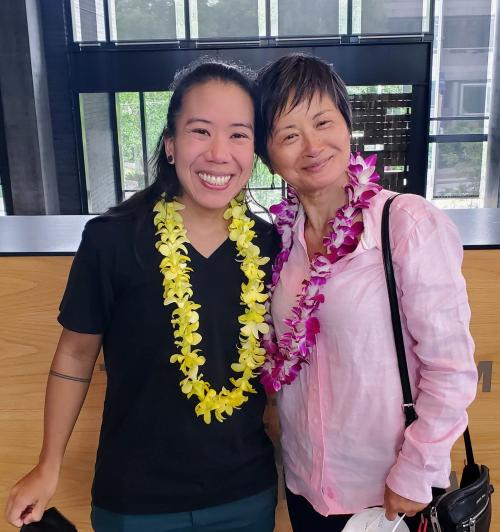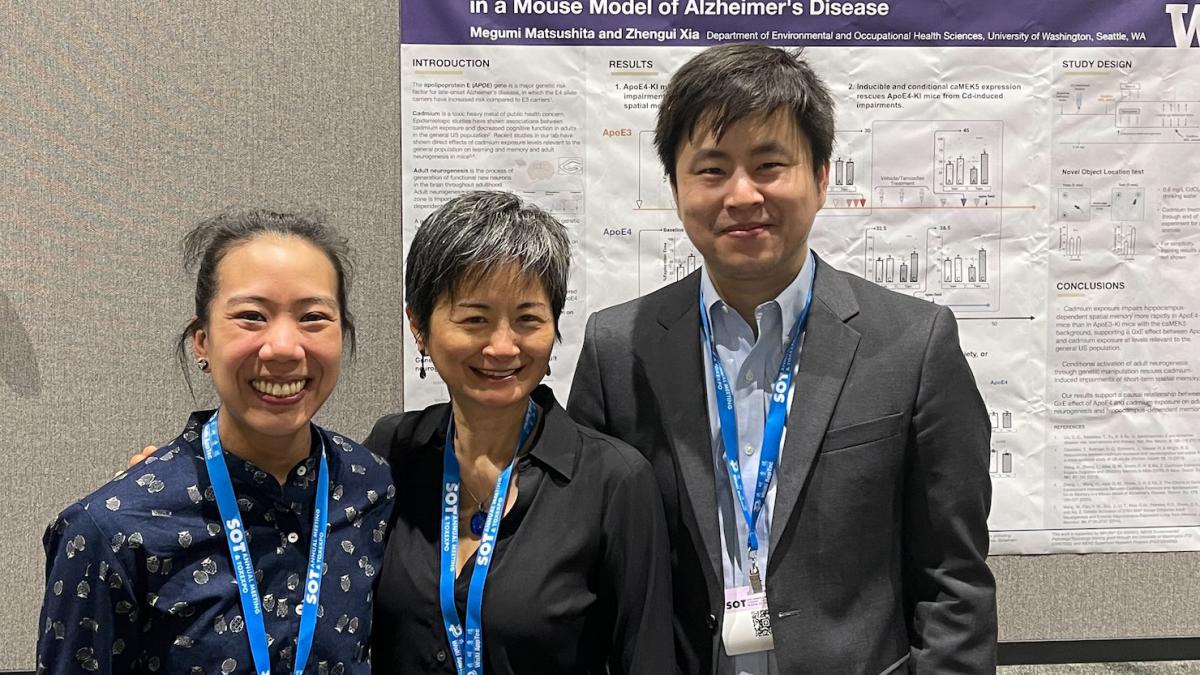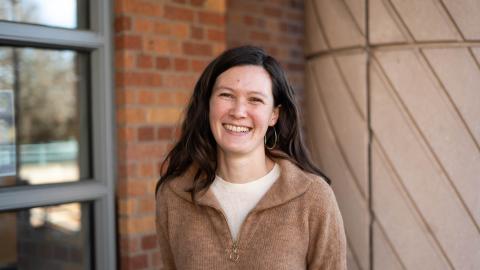
For her extraordinary support of students and postdoctoral researchers, UW Department of Environmental & Occupational Health Sciences (DEOHS) Professor Zhengui Xia has been awarded the 2022 Outstanding Faculty Mentor Award.
Megumi Matsushita, a 2022 PhD graduate in Xia’s lab, presented the award at the DEOHS Happy Hour on June 22. The award is given annually by the DEOHS Student Advisory Committee to a member of DEOHS who has shown particular dedication to mentorship.
Xia is a toxicologist who studies how exposure to air pollution, heavy metals and other environmental factors affect the brain. She also explores how genes work in concert with the environment to influence people’s susceptibility to disease.
Xia is also an adjunct professor in the Department of Pharmacology and a faculty member of two interdisciplinary graduate programs at the University of Washington—the Neurobiology and Behavior graduate program and the Molecular and Cell Biology graduate program.
Matsushita reflected on her experience working with Xia:
I have so much gratitude for the training and experience I’ve had thus far with my PhD advisor, Zhengui Xia. She is an outstanding mentor and a fantastic scientist, and she deserves recognition for her years of great mentorship in the department.
Zhengui first reached out to me before I even visited DEOHS. She and I had a lovely conversation for over an hour on FaceTime. At that point, I already knew that she was going to be a perfect advisor for me.
When I joined her lab in 2017, it was like I joined a family. Zhengui builds genuine relationships with staff, faculty and mentees including postdocs.
Zhengui is invested in everyone professionally and personally, and intentionally cultivates a collegial and congenial environment. The amount of compassion that Zhengui has for her staff and her mentees is truly extraordinary.
Zhengui advises by prioritizing whatever the mentee wants out of their future career. I was originally interested in pursuing academic positions, and my interests have slowly shifted to pursuing work in government as a toxicologist. Zhengui has been supportive at every step of the way.
When I told her I wanted to pursue an internship with the Washington State Department of Health, she encouraged me to pursue it. When I told her I wanted to gain computational neuroscience skills through an intensive workshop, she encouraged me to pursue it and offered to pay for the training.
Zhengui has also connected me to prominent neurotoxicology and neuroscience researchers, as well as alumni who are in non-academic positions.
Zhengui has always provided or helped secure funding for all of her students throughout their graduate degree. She told me that she believes that students should never be worried about funding in addition to classes and research.




